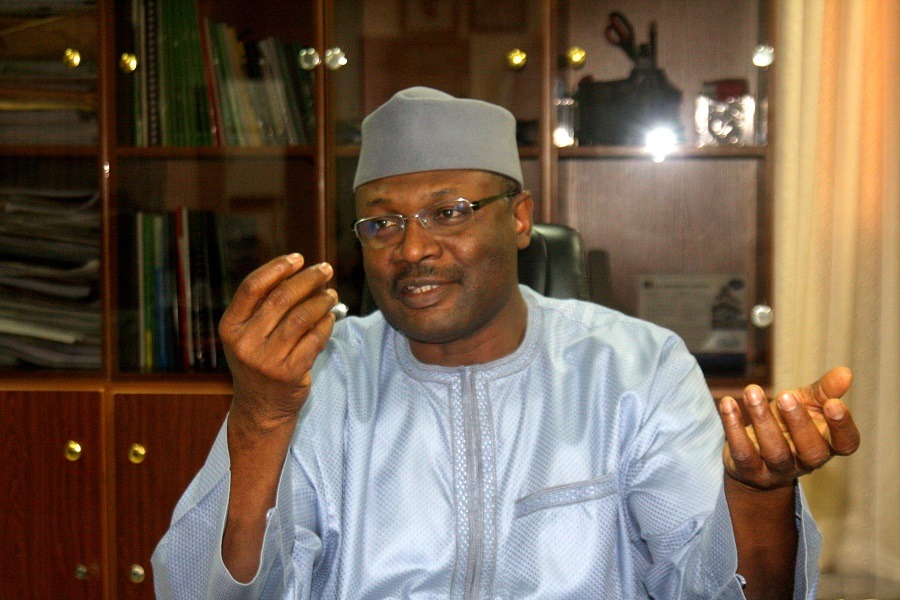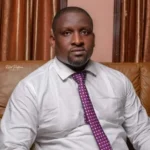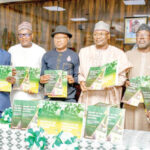Chairman of the Independent National Electoral Commission (INEC), Professor Mahmood Yakubu, in this interview with selected journalists in Kano discusses several issues including the calls by stakeholders to allow other means of identification for the election aside from the Permanent Voters Card (PVC), the controversies over the gubernatorial candidacy of the People’s Democratic Party (PDP) in Kano, plans on the deadline for the Continuous Voters Registration (CVR) exercise, inconclusive election, among others. Excerpt:
Is INEC considering the extension of the Continuous Voters Registration (CVR) exercise again?
We still have a few days till the conclusion of the exercise; so let’s wait until very close to the deadline. Remember what we earlier decided? We were doing the registration between 9am and 3pm for over one year: June last year till early July this year.
- Assistant Commissioner of Police dies in Kwara motorcycle accident
- CVR: Voters in last-minute rush 3 days to deadline
But when we announced the extension to the suspension of the exercise as provided by the law, we extended it to 9am-5pm and we even do it beyond then as long as there are citizens to serve. Secondly, we extended the registration to cover the weekends and public holidays. So, the direct response to your question is that we still have a few days to the end of the exercise, so let’s see how things pan out instead of coming to an immediate conclusion at this point.
What is the commission doing to ensure that people in security-risk areas get registered and participate in the elections?
When we started the CVR, we wanted to extend it beyond our state and local government offices but we consulted with the stakeholders including the security agencies and they initially advised that we should do it in our state and local government offices and later we considered the devolution of the exercise beyond these places. So we have a roll-on and roll-back approach to the registration exercise. We will not put our staff in harm’s way on account of the exercise. The law is clear. Even when we conduct the election, the law says where we anticipate there is going to be violence, we should suspend it, let alone the processes leading to the election. Unfortunately, at some places, our officials were attacked and the processes disrupted but we were able to recover and continue with the exercise. So, we have been working with the security agencies in that respect.
In respect of nationwide security challenges, what will happen in the 2023 elections in places where there are security challenges are matters we are discussing with the security agencies and we have a robust system of engagement. But at this point, this is not something we can go to the public with on how the security agencies are going to secure the country for the elections. Fortunately, we still have some time for that to happen.
In some other countries, voters use all manners of identification but in Nigeria, there is insistence on only one means of identification, that is, the Permanent Voters Card (PVC). Why is this so?
Every jurisdiction has its own legal framework that governs the conduct of elections. In Nigeria, the law requires that for any citizen to vote; he/she must be registered as a voter in a particular polling unit and on election day, he/she must present evidence of registration to the presiding officer at the polling unit and at present, this is the PVC.
Until such a time when the legal framework changes, that is what the law requires us to do.
Inconclusive election has become a part of our electoral process in the past years; with more registrants in the system now, does this not produce more challenges for INEC as regards the margin between the winner and runner-up and the total number of registered voters?
I think you are referring to the margin of lead principle in terms of the number of votes between the leading candidates and the runner-up. I want to say two things in that respect. First is that we are no longer using the entire register of voters; our regulations provide for PVCs collected as a determinant for the margin of the lead principle. That is why in both Ekiti and Osun, before the elections, we published the number of PVCs collected not only by polling units, Wards but also by local governments. So we have the statistics for every polling unit, and how many PVCs have been collected. So in case there will be a need to apply the margin of lead principle, it will apply only in respect of PVCs collected because these are the potential voters.
And before the 2023 general elections, we will also provide the statistics nationwide. We have 176,847 polling units nationwide and we will publish the number of PVCs collected by polling units before the election.
Secondly is the cleansing of the register of voters to remove ineligible persons including deceased persons. The National Population Commission (NPC) is the agency saddled with the registration of birth and death in the country and we have an MoU with them. There is a committee working with the NPC to design a template so that we can collect actionable templates to enable us to clean up the register of voters. But beyond that, the law has also empowered the citizens to help the commission to clean up the register. At the end of the CVR, we will publish the register for claims and objections. When we integrate the new registrants with the existing register (84 million voters), the law demands we publish this in all wards and LGAs for claims and objections. At that point, people are supposed to go around and check for ineligible persons on the register. In 2019, we received a few of these. But sometimes, these claims are difficult to verify. So, when it comes to the cleaning of the register, we are always very careful, so we leave it to the agency that has the statutory responsibility to confirm that citizens are alive or dead. But we are also relying on citizens to help us when we paste the register. Based on the projected 95 million registered voters for 2023, we are required to publish the hard copies of the register in all the 8,809 wards and all the 774 LGAs nationwide. For the display alone, the commission will print 9.5 million pages of the document. When it comes to the election proper, we will publish three sets of the register; one in colour to be used at the polling units and two others in black and white, which will bring us to 28.5million pages, only for the register. So this is huge.
For those interested in comparison, there are 15 countries in West Africa including Nigeria. The number of registered voters in 2019 was 84 million. The total number of registered voters in the 14 other countries combined is 73 million, which means Nigeria has 11million more registered voters than the whole of West Africa. So, each time elections are conducted in Nigeria, it is like you are conducting an election for the entire sub-region. The registered number of voters in Anambra for instance is more than the registered voters in Liberia. So the election we conducted in Anambra was like an election in Liberia. Osun for instance with 1.9million voters is more than the combined total registered voters in The Gambia, Guinea Bissau and Cape Verde. So the task is huge but we will continue to do our best under the circumstances.
In Kano, for instance, there has been a disparity between the position of the state headquarters of INEC and the national headquarters, especially as it relates to the People’s Democratic Party (PDP). What is your position on this?
There are legal issues involved and I think it is prudent for us not to delve too much into it at this point. Yes, we monitored the primary conducted by one faction but before the submission of the names of candidates, another legal issue arose. So, under the circumstances, we normally don’t comment much.
But I want to assure you that we are not a political party; we have no candidate in the election. So, we will do whatever it takes to be fair to all political parties. After all, this is essentially an intra-party matter.
INEC has always raised concerns about the funding for its operation, has this been addressed? Is INEC financially ready for the 2023 election?
The cost that we submitted to the government for the 2023 election is N305 billion and this has been appropriated by the National Assembly. At this point, the Ministry of Finance has been releasing the fund in installment to the commission because we are on the first line charge. If there is any further development, we will go public after approaching those that are supposed to make the money available, but we don’t expect any issues. The money is huge, but so are the responsibilities we perform.
Beyond the CVR, what are the strategies INEC hopes to deploy to ensure seamless collection of PVCs?
We are collecting data from registrants, including their phone numbers and email addresses. We have been reaching out to the new registrants through these means to let them know their PVCs are ready for collection at particular locations. In addition to that, our portal guides citizens on how to collect their PVCs. We have also been speaking to some civil society organisations that are willing to collaborate with the commission to ensure that we give Nigerians a pleasant experience when it comes to the collection of PVCs. So, we will leave no stone unturned to ensure that these PVCs are available for collection long before the election. It will also help us to compile the registers including the number of Nigerians that have collected the PVCs polling units by polling units nationwide.

 Join Daily Trust WhatsApp Community For Quick Access To News and Happenings Around You.
Join Daily Trust WhatsApp Community For Quick Access To News and Happenings Around You.


